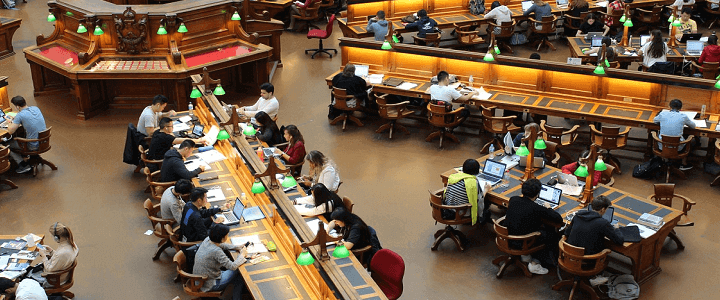In the past, Princeton University would not accept transfer credits that a student may have acquired, such as from military service or previous post-secondary education. But in a recent initiative by the school to boost the number of veteran students in attendance, it changed its 30-year-old no-transfer policy. Some of the other Ivy League schools have also followed suit by implementing their own initiatives to boost veteran attendance.
Over the last five years, the Department of Veteran Affairs says the number of Post 9/11 GI Bill users overall has grown by 34%. While there are several reasons for this growth, some of it came from Ivy League schools being more receptive to accepting veteran students.
According to the latest figures, 1,700 GI Bill users are attending the eight Ivy League schools, up from 206 enrolled just ten years ago. Of the Ivy League schools in 2017, Princeton had the fewest GI Bill users at 22, while Columbia had the most at 531.
Under the new Princeton transfer policy, six of the nine accepted students for the 2018/2019 school year had prior military service. But it still is not easy to get in. Of the 1,400 applicants, only 13 were approved to apply.
Below is a chart showing the tuition, fees and book costs of these prestigious private schools. Because they are all private schools, the Post 9/11 GI Bill will only pay up to $23,671.94 per year in tuition and fees (or less than half the cost), along with up to $1,000 per year for books and a monthly housing allowance based on the zip code of the school and number of credits taken.
| Ivy League Schools | ||||||||
| Brown
|
Columbia
|
Cornell
|
Dartmouth
|
Harvard
|
Princeton
|
University of Pennsylvania | Yale
|
|
| Tuition and fees | $55,556 | $61,948 | $54,818 | $55,035 | $50,420 | $49,450 | $55,584 | $55,500 |
| Books | $1,595 | $1,000* | $2,800 | $1,000 | $1,000* | $1,000* | $1,318 | $1,050 |
- Tuition and Fees costs from each individual school website
- *= Estimated at the maximum Post 9/11 GI Bill Book Stipend amount authorized as actual cost was not available
While the tuition and fees amount paid by the Post 9/11 GI Bill directly is less than half of what the school charges, don’t let that unpaid amount keep you from applying. As shown below, most of the Ivy League schools have a generous Yellow Ribbon program which covers most of the unpaid costs. Keep in mind that under the Yellow Ribbon program, the VA matches what a school pays in addition to the tuition and fees it already pays directly to the school.
| 2018/2019 Yellow Ribbon Program | ||||||||
| Brown
|
Columbia
|
Cornell
|
Dartmouth
|
Harvard
|
Princeton
|
University
of Penn |
Yale
|
|
| Number of Students | 50 | Unlimited | 150 | Unlimited | Unlimited | Unlimited | 50/
6** |
Unlimited |
| Yearly Max Contribution per Student | $10,000 | $10,0000 | Unlimited | Unlimited | $6,000 | $4,000 | $10,000/
$4,000** |
$10,500 |
** Liberal and Professional Studies/School of Engineering and Applied Sciences
In addition, most of the schools also have their own financial aid programs which further reduces out of pocket costs; in some cases, the net amount owed by the student is $0.00.
So why get a degree from an Ivy League school? For one thing, it can open or help open doors that degrees from non-Ivy league schools can’t. Because Ivy league schools have big endowments and very devoted and strong alumni network, they can help secure a job after graduation. Also, the U.S. Department of Education data shows that Ivy League graduates earn on average more than twice as much as non-Ivy school graduates after 10 years in the field.
Still, an Ivy League school might not be right for you, Do your due diligence and weigh all the factors before deciding on which school to attend. Just know that an Ivy League school could be within your reach!




